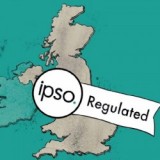 A regional publisher adequately protected the identity of a civil servant who spoke out on bullying in Whitehall, the press watchdog has ruled.
A regional publisher adequately protected the identity of a civil servant who spoke out on bullying in Whitehall, the press watchdog has ruled.
The Independent Press Standards Organisation has ruled in favour of National World’s NationalWorld website after it anonymously quoted the civil servant, who had given evidence in the inquiry into former Deputy Prime Minister Dominic Raab’s conduct.
After publication of their comments, the civil servant and NationalWorld had been in dispute as to whether conversations with one of the site’s journalists had been “off the record” or for “anonymous” quoting.
Regardless of how the conversation was characterised, IPSO found following an investigation that NationalWorld had done enough to protect its confidential source.
The story under complaint contained direct quotes from the civil servant and various details about their employment – including the time which they had spent in the role in question, and what prompted them to leave the job.
It also included details about an incident involving them and at least two other individuals – including Mr Raab and one of his aides, who was unnamed.
Complaining under Clause 14 (Confidential sources) of the Editors’ Code of Practice, the civil servant said that they had spoken to NationalWorld on the basis that their contribution was “off the record” and had made this clear at the beginning of the interview.
They said the article had quoted them directly and had published several details about them, including the detail of a specific incident involving a small number of individuals, which they believed would lead them to be identified.
The civil servant told IPSO they were unaware if anyone had successfully identified them as a result of the article and accompanying tweet, but considered that it was likely the case.
NationalWorld, which had apologised and removed the story upon the civil servant’s request, accepted the civil servant had requested the interview should be off the record but added they had also said during the interview that they were happy to speak on the matter anonymously.
In a recording of the interview, when questioned about a previous interview, the civil servant had said: “I’m generally happy to speak anonymously… others have reached out to me, and I’ve got no problem speaking anonymously.”
NationalWorld said it had also removed the civil servant’s job title, gender and department from its reporter’s copy prior to publication because it was too specific.
IPSO noted that staff at the publication had clearly shown concern prior to publication of the article regarding the possible identification of the source as demonstrated by their internal correspondence – which showed the request being conveyed among staff, and the request that certain information be removed from the article to protect the civil servant’s identity – such as their gender and the department they worked for.
It found the included information was general in nature, beyond the reference to a specific incident, but it did not follow that the incident described would necessarily be unique to the civil servant.
IPSO considered clear steps had been taken to meet the moral threshold of protection required by the Code, but noted that – generally speaking – should there be any confusion or ambiguity over a request to remain off the record, it would be expected that a publication would clarify the nature of this request in order for it to comply with its obligation.
The complaint was not upheld, and the full adjudication can be read here.





 Follow HTFP on Twitter
Follow HTFP on Twitter